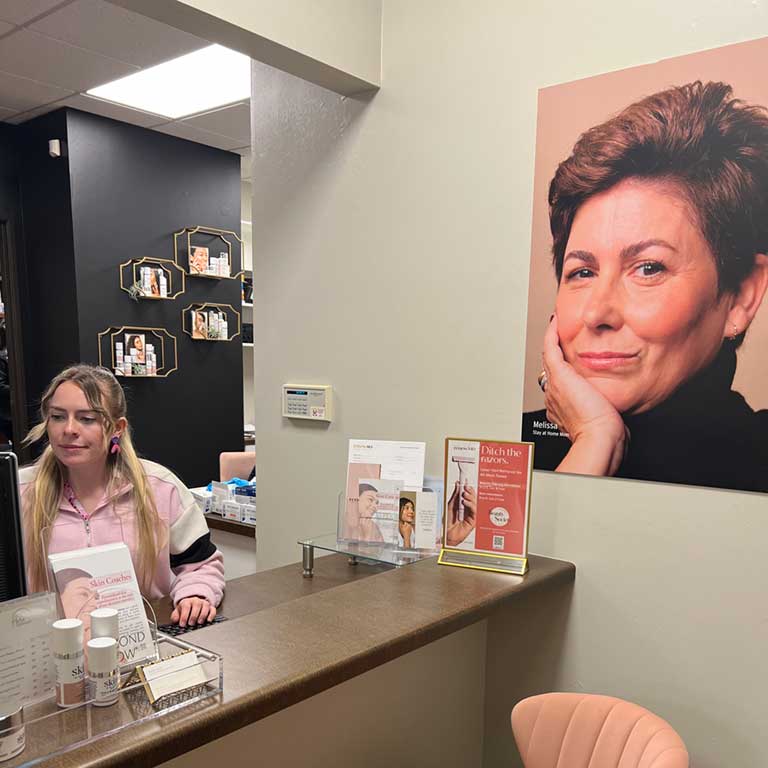How the Right Diet Should Support Your Skin Health
On this blog, we will discuss the types of diet that affect skin:
- The calorie restrictive diet
- The impact of the vegan
- The Keto diet
- The Paleo diet
- The balanced diet for skin and health
Diets are common, and there are many of them! Diets usually serve the intention of slimming down, toning up, or altering the body’s in some way. However, one crucial side effect to consider with any diet is its effect on the body’s largest organ – the skin, while also keeping in mind that our skin is able to tell us what we should change about our lifestyles to ensure optimal health.
Regardless of the intention behind your diet, the nutrition fueling your body also impacts your skin’s health and ability to serve its protective purpose. Furthermore, choosing a diet that lacks the necessary nutrients can compromise your skin’s ability to look and feel its best!
On The Skin Report podcast, Dr. Simran Sethi, an Internal Medicine doctor and Founder of RenewMD medical spas and SKIN by Dr. Sethi, discusses popular weight loss diets and how they impact our skin. Read on to learn how to choose a healthy, skin-friendly diet to fuel you through the new year!
Calorie-Restrictive Diets
Diets are often considered as a way for people to lose excess weight. For this reason, calorie-restrictive weight-loss diets are often promoted. A highly restrictive calorie diet usually involves consuming less than 1000 or 1200 calories daily for women and men, respectively. Many ‘diets’ and dieting trends support severe calorie restriction to promote weight loss, but this can lead to other adverse side effects.
When we severely restrict calories, the body is tricked into believing that we are stressed. Therefore, these highly restrictive calories can cause fatigue and an increase in our stress hormone, cortisol. When cortisol levels are high, the body starts storing energy and every calorie you eat towards survival functions and directs them away from other functions, including growth.
When our naturally occurring growth hormone levels are suppressed, skin rejuvenation and bone, hair, and nail growth are also suppressed. Additionally, our metabolism slows down, which is why even if you lose weight on these diets initially, your weight will eventually plateau due to heightened cortisol levels.
So how does this affect the skin? Well, without naturally occurring growth hormones, you will notice that your skin will become dry, dull, and more prone to breakouts. Hair and nails will also become brittle.
No matter what catchy name you call it, a highly restrictive diet will always lead to failure and have the most negative impact on your skin, hair, and nails, regardless of any supplements, skin care products, or treatments you use.
Popular Diets and Trends
So what about eating lifestyles that don’t center on calorie restriction? Well, diets that are less focused on detoxing and more on altering your eating approach will likely be more sustainable in the long run.
Let’s review some popular diets and trends, how they affect the skin and other important considerations.
Veganism
Veganism is a popular diet that is centered around the intake of plant-based foods and prohibits the consumption of animal products.
The emphasis on plant-based foods and incorporating fresh fruits and vegetables are conducive to nourishing the skin renewal cycle and building collagen. This diet also involves consuming foods that are high in antioxidants, contain natural sugars, and are high in fiber, which is excellent for your skin and overall health.
When it comes to veganism and skin health, there are a few aspects of the diet that should be carefully considered. First, people should try not to rely on highly processed foods, such as vegan “meat” substitutes, as this can negate the beneficial aspects of the diet. Additionally, vegans or vegetarians who don’t eat eggs are also prone to a B12 deficiency. Therefore if you are vegan, incorporate a B complex vitamin and some fortified cereals, as these will add vitamin B12 to your diet.
Vegans may also be low in absorbed calcium, which can lead to a reduction of natural sebum production and leave skin, nails and hair dry and dull. People practicing a vegan diet should ensure that they consume healthy amounts of calcium to avoid these effects.
Keto
The Keto diet, also called the ketogenic diet, is a widespread weight-loss practice that focuses on low-carb and high-fat intake.
The diet relies on reducing carb intake significantly, so the body will instead burn fat for fuel. However, people cannot rely on a keto diet alone to lose weight. If you do not burn that fuel source, the body will turn it into fat. Furthermore, if you consume more calories from fat in this diet than your body needs, you will gain more weight with a keto diet.
The keto diet impacts the skin in several ways. Your fiber intake plummets when eating high-fat foods and not enough vegetables. This can be problematic, as fiber helps the body absorb micronutrients like minerals and vitamin c, which are essential for skin health. Without these nutrients, skin will become weaker and more prone to wrinkles.
Fortunately, the ketogenic diet encourages leafy vegetables high in antioxidants and fiber without the added carbohydrates. This can be helpful for avoiding the harmful effects of cutting carbohydrates through this diet.
Paleo
Another popular weight loss diet is the paleo diet or the “caveman diet.”
This diet requires people to eat foods thought to have been consumed by humans living in the paleolithic era. For example, this diet can consist of meats, eggs, fruits and vegetables, while avoiding processed foods, carbs, grains, and added sugars.
The Paleo diet is beneficial for inflammatory skin conditions, especially acne. Still, people who practice a Paleo diet may run the risk of consuming too little fiber, but consuming vegetables and fruit can help to keep fiber levels adequate for optimal nutrient and antioxidant absorption.
Healthy Diets for Healthy Skin
However, balanced diets allow you to lead a healthy lifestyle and support a healthy body and skin. Sustaining a healthy lifestyle can enable you to maintain healthy weight loss, and practicing balanced diets that suit your taste and lifestyle is ultimately what promises success.
Tune in to The Skin Report podcast to learn more about how practicing a beneficial lifestyle for balanced eating and weight loss can positively affect your skin’s health!








Leave A Comment